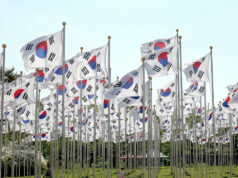To address inflation, DoE issues order that will bring back Euro 2 diesel
The Department of Energy (DoE) has issued a directive to oil companies to start selling Euro 2 diesel even ahead of the Environment department’s say on the matter and going against the past administration’s drive to shift to the cleaner Euro 4.
In a press conference on Tuesday, Aug. 14, Energy Undersecretary Felix Wiliam B. Fuentebella said the rising prices of commodities had prompted the DoE’s order.
“We have a bigger problem to address . . . inflation,” he said.
He said DoE Secretary Alfonso G. Cusi had instructed the department to study options to lower commodity prices after the Office of the President pressed government agencies to address inflation.
He said the Euro 2 “option” does not violate health and environmental standards and gives consumers the choice to buy lower-cost diesel while helping the economy through the reduction of fuel prices by around P0.28 to P0.30 per liter.
Under the past administration, the DoE set Jan. 1, 2016 as the deadline for oil companies to upgrade to cleaner emission standards of fuel from Euro 2 to Euro 4, a globally accepted European emission standard for vehicles.
Euro 4 requires the use of fuel with a significantly low sulfur of 0.005% or 50 parts per million, and benzene content at a maximum of 1%. Euro 2 fuels have up to 0.05% sulfur or 500 parts per million and up to 5% benzene.
Senator Sherwin T. Gatchalian, the Senate energy committee chair, said the first question to ask is whether the use of Euro 2 is compliant with the law. Many countries had even banned the fuel, he added.
“I know the Clean Air Act is already banning this type of dirty fuels. In fact, ‘yong mga tricyle natin karamihan ay pina-convert natin to Euro 4 (we have ordered many of our tricycles to convert to Euro 4). But going back to Euro 2 might have a problem with the [Act],” he said.
“We will have to study first if it is a violation of the Clean Air Act. Pag ganoon (If so), then we will need to be enlightened dahil nga (because) instead of moving forward to cleaner fuels, we’re moving backward to dirtier fuels. We also have to weigh in ‘yong mas mura nga siya by 30 centavos pero ‘yong (while it’s cheaper by 30 centavos, the) externalities like health and respiratory illness might be . . . compromised. So dapat mapag-aralang mabuti (This must be studied well),” he said. — Victor V. Saulon



